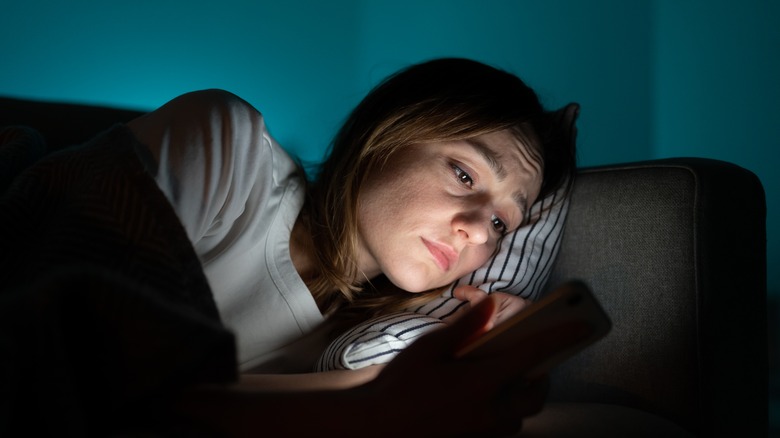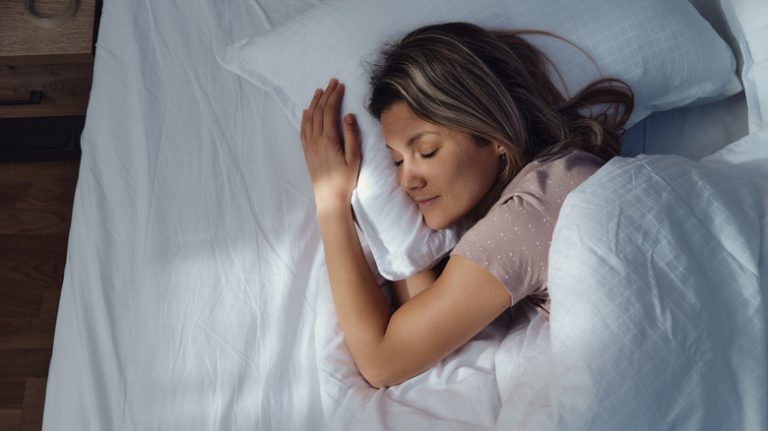It’s not uncommon to have an occasional night where you don’t get enough shut-eye. Between chaotic work schedules, household demands, and life stress, finding enough time each day to properly rest can seem like an impossible task. However, not getting enough sleep consistently can lead to a variety of health problems, memory issues, fatigue, and irritability, Healthline explains. While the number of hours of sleep each person needs varies over a lifetime, it is recommended that adults aged 18 and older get between seven to nine hours of sleep each night. But settling down your mind enough to rest well can be a challenge. In these cases, meditation may prove helpful.
The Sleep Foundation explains that sleep deprivation occurs when an individual has reduced or limited time for sleep. Sleep deprivation differs from both insomnia and sleep deficiency. Where sleep deprivation refers to not having enough time for sleeping, insomnia occurs when an individual experiences difficulty sleeping — despite having adequate time for sleeping. Sleep deficiency is a term that is used to describe the experience an individual has when there are multiple disruptions during a sleep cycle, regardless of the amount of time. It is important to note that sleep deprivation and insomnia can overlap, causing the term sleep deprivation to be used as a blanket term in many cases. Finding ways to combat sleep deprivation begins by understanding its causes and symptoms.
What does sleep deprivation look like?

Sleep deprivation can be caused by a number of factors such as poor sleep hygiene, work scheduling, personal habits, and medical conditions (via The Sleep Foundation). In most cases, however, sleep deprivation is a result of personal choices that lead to a combination of negative sleep patterns. For example, choosing to stay awake until 2 am to binge-watch a television show with an early morning work schedule can lead to sleep deprivation. Other factors like medical conditions or working multiple jobs can also lead to sleep deprivation.
Some of the symptoms associated with sleep deprivation include irritability, excessive yawning, mood changes, reduced attention span, and poor decision-making skills (via the Sleep Foundation). Healthline explains that sleep deprivation where an individual stays awake consistently across several days can lead to deprivation psychosis, where a person’s reality feels distorted.
But what is the best way to deal with sleep deprivation?
Setting an appropriate time for sleep is one way to encourage better sleeping habits and reduce the risk for sleep deprivation (via Healthline). Additional recommendations include limiting caffeinated drinks, limiting naps during non-sleeping hours, and exercising daily. For those who struggle to quiet their mind, settle their body, or distract themselves from another episode, engaging in mediation before bed can also be a great way to help reduce the risk for sleep deprivation, according to Healthline.
Meditation for sleep deprivation

Engaging in a nightly meditation practice is one way to encourage better sleeping habits.
Meditation can be calming, relaxing, and bring a sense of peace to your emotional wellbeing, explains Mayo Clinic. For those new to meditation, guided meditation sessions designed to aid with sleep can be a great resource. The Sleep Foundation explains that meditation allows the body and brain to be more receptive to sleep triggers through the mindfulness of breathing and body states. Guided meditations, body scan meditations, and mindfulness meditations are recommended for individuals struggling with developing healthy sleeping patterns. Healthline explains that mindfulness meditation has been linked to individuals sleeping longer than those that did not meditate. These practices often use soothing tones or music combined, gentle verbal cues, or a combination of both to focus the attention while slowing both the heart rate and breathing rate (via The Sleep Foundation). With practice and consistency, meditation can help facilitate a routine sleep schedule designed to reduce sleep deprivation.








